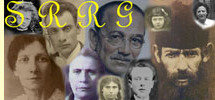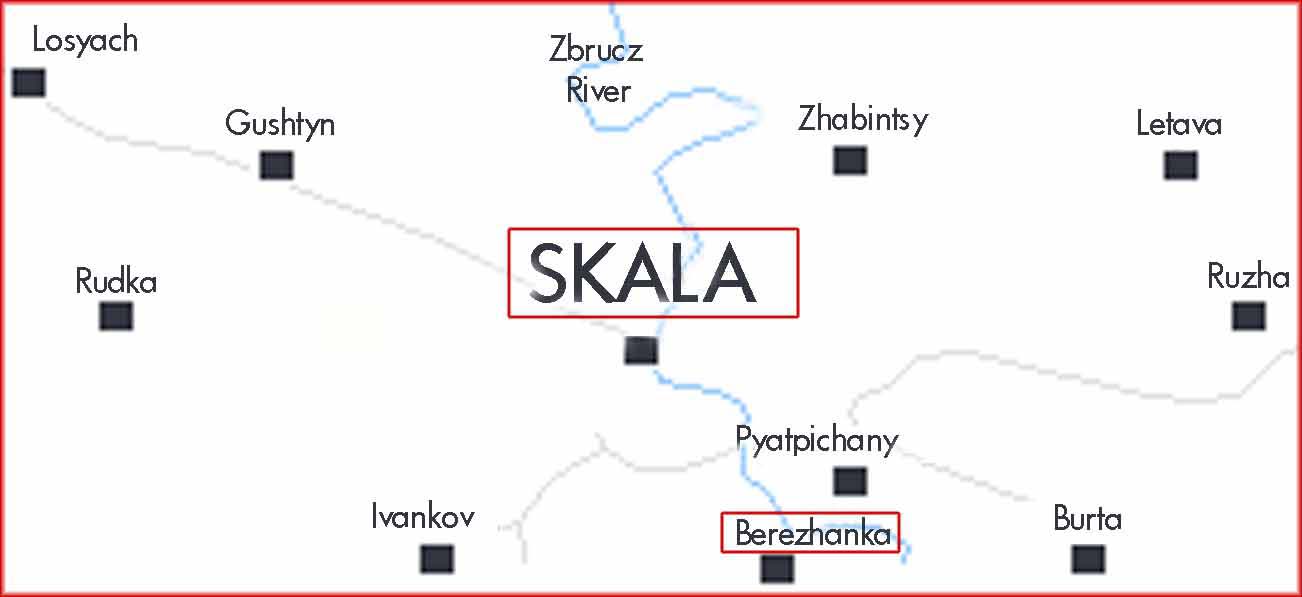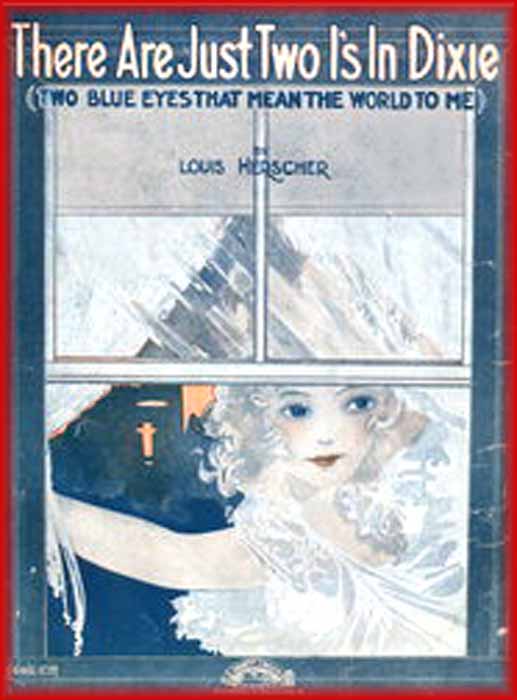

|
 |
A number of small villages surrounded Skala, the inhabitants of which were part of the greater-Skala community. For generations, the Herscher family were millers in the nearby village of Berezhanka, south of Skala on the Zbrucz River.
The letter from which the excerpts below were taken was written in America on May 16, 1940 and sent by Simcha (Samuel) Feingold to his cousin Louis Herscher. It beautifully captures the flavor of life in the old country.
This missive and the accompanying photograph of Chaim and Sura Herscher were provided by their great-granddaughter Susan Graber Slusky. According to the author of the letter, Chaim Herscher “took control of the [family] mill and left nothing for his younger siblings.” Susan notes: “Perhaps my great-grandfather had a different story to tell justifiying himself, but he died during the Holocaust and that story is lost..”
Uncle Chaim Herscher is too old to attend to a mill. If some of his sons remain yet, it isn't as it used to be. Poland was a power some time ago. Hitler or Stalin has it by now, it is uncertain to me, it would be ridiculous to believe Hitler would keep a will of one minute or one hundred years. Stalin, doesn't everything belong to him? Do the rulers respect their promises made or their pacts?
How I know of the will of 1818? Well, it was the talk of the town in 1875, concerning the agreement and I know it further from hearsay. The contract ... followed, but in 1875 another man tried to take over the mill and all the rest as usual, by an increase in rent to so much more than your grandfather Duvid Shloima was able to pay. He felt he could not keep up the increase in the yearly payments, and then some miracle happened.
An old resident of the village, one who in his younger days served as a master of horses and cows had remembered the story, and every one in the village felt sorry for the old Duvid Shloima, because they all loved him and would miss him, as a good owner of the mill. The villagers and residents all gathered in the inn, where Mordechai Richter, who was a son-in-law of Duvid Shloima, was the innkeeper and after a few drinks, this villager began to talk of a new mill owner, this was a kind of strike and a surprise.
My grandmother Chaye Hudel, one aunt Chave Yenta, and your father Elya received nothing. They were tricked. Uncle Mordechai Richter remained at the tavern for life. Both he and his wife died in it.
Thank G'd for rewarding me with a good memory, no fantasy attached to this story. Though [I am] not sure of every detail, the nature of the conflict was as I remember that [there was a lawsuit] before an official Rabbi, by Uncle Mordechai to arbitrate over some inheritance of land, cattle, etc., which my grandmother was entitled to her share, also your father Uncle Elya who was a minor, and Aunt Chava Yenta, whose husband Bezalel was a rich headman of land-holders properties; but after the arbitration Chaim did not keep the verdict of the arbitrators.
Of my brother's children are in New York, my answer is I had a brother Itzy who served 15 weeks in the World War, and whose wife was frightened by the Bolsheviks and whose teen-age daughter was beaten to death by the Bolsheviks. They all died leaving their two boys and three girls orphans that were homeless, helpless, but thru good people and relatives were kept there for sometime.
In 1880 there was a Herscher, very close, who kept with grandfather Duvid Shloima a close relationship and friendship. He was a very religious [man] named Favil Moisha. How he was an uncle I don't know. Now Duvid Shloima and Favil Moisha were partners in dealing in oxen in great quantities. They shipped them to cities and various states and to other foreign lands. Favil Moisha was recognized as an honest man in the community. They chose him as the head of their activities for a [number of] of years, but when his partner Duvid Shloima died in 1877, this Favil Moishe left about 3 years later, leaving the community he served and went to the land Eretz Yisroel. The woman and children walked him out of town with tears in their eyes, but he was content, saying, “I am glad. Now my body will rest in Palestine earth. I am sorry Duvid Shloima won't be with me,” although he after that did die very young.
A custom of this type of religious man was whatever they intended to do, they had to [get] advice first from the pious. These pious had their adherents or Chusids. This man had called Reb Mayer'l who refused to accept the honor of being a Rabbi, a man full of [wisdom?] and witty, with many jokes. This Reb Meyeril lived about 28 European miles [from Berezhanka] or American miles going by horse power, and yet the long distance did not matter.
My grandmother Chaye Hudil was the oldest daughter and sixteen years old, but single. Duvid Shloima your grandfather complained to this Rabbi who was known as Reb Mayer'l. He brought the matter up several times and each time Reb Meyer'l would say, “Go back home Red Head. You got plenty of time with your fat daughter.” Once upon a time your grandfather came again to the Rabbi with the same complaint, but this time Reb Mayer'l said, “Your daughter's mate is on the way. I wish you good luck.” Hearing this such definite declaration from the Rabbi, who could ask for more or argue any further, when the Rabbi said it is so.
Lo and behold the next week a man came over the border of Russia and married the daughter of Duvid Shloima, my grandmother. Later on Duvid Shloima went to Reb Mayer'l with another request to bless his son-in-law with good tidings and good wishes. The Rabbi turned to both Duvid Shloima and his son-in-law and said, “You red-head keep your son-in-law with you, and you, Saucer, stick all your life with the red-head.” Saucer is a big hat that the son-in-law wore.
My grandfather, the husband of Chaye Hudil, worked at the mill till the last minute of his life. Both passed on in 1877. As Reb Mayer'l passed on long before, but Duvid Shloima became another pious person in whom he placed such trust in Reb Mayer'l.
Another wonder my Mother told me of the Herschers concerned the respect and nobleness held of them by their neighbors. This was referred to as follows: Of Yeshia Mordechai's children the daughter Risa your grandfather's oldest sister who married a cousin, also a Herscher. They settled in a pious town, and bought a home very reasonably priced because it rested on a high spot, high over a running water, a river considered to be very dangerous to live in. In a case like this Risa went to the rabbi for advice and blessings. The rabbi answered, “We can't hide ourselves from danger even with the strongest fortress. Go live a long a happy life to a good old age.”
I also went there to the rabbi at the age of twenty for his blessings, as I had my lodging in the same house of course with fear. Risa and her family lived in it close to fifty years. I am told that she lived there to the age of eighty or more, raising a family of children and grandchildren because they had faith in themselves and believed in good faith as believers.
 |
Louis Herscher, to whom this letter was written, was a popular songwriter who composed and conducted the music for a number of films. His father, Cantor Elias Herscher, was born in Berezhanka. |